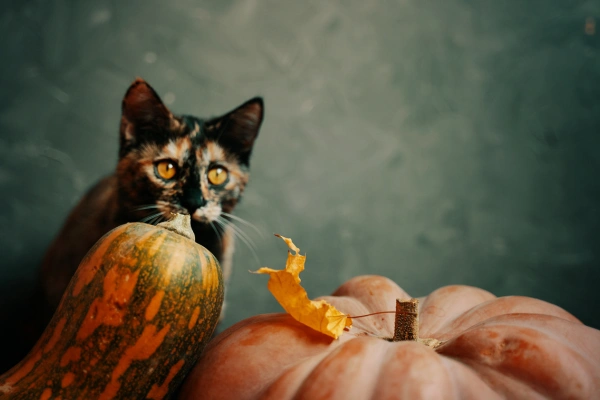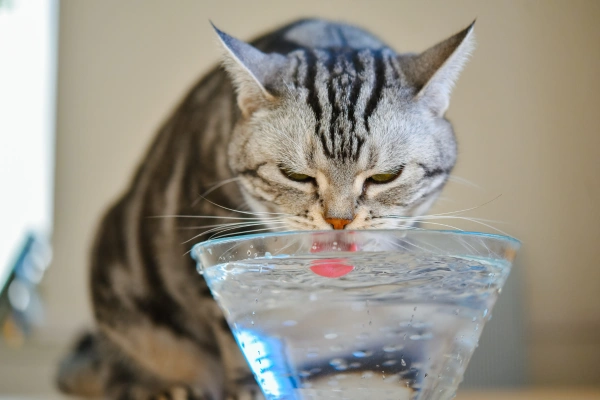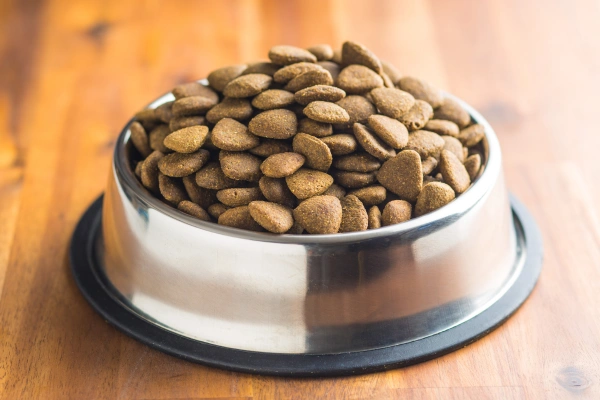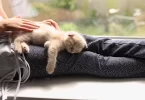If you’re a cat parent, you know the unmistakable sound of a hairball on the way. It’s that dreaded hacking that makes every cat owner freeze in panic. But while the occasional hairball is normal, frequent ones can be a red flag—and let’s be honest, it’s not fun for your kitty or your carpet.
Instead of resorting to artificial gels or harsh treatments, many cat lovers are turning to natural remedies that support healthy digestion, reduce shedding, and help fur pass easily through the system. Below, we’ll dive into the best natural ways to keep hairballs in check—safely, gently, and with your cat’s long-term health in mind.
1. Add Pumpkin to Their Diet

Plain canned pumpkin (not the sugary pie mix) is rich in fiber and helps move things along in your cat’s digestive tract. A teaspoon a day mixed into food can work wonders. It also adds moisture, which helps hair slide through more easily.
Bonus tip: Most cats actually like the taste! Start with small amounts and monitor how your cat reacts.
2. Brush, Brush, Brush
One of the easiest ways to deal with hairballs is to stop them before they start. Brushing removes excess hair before your cat can ingest it. Long-haired breeds especially benefit from daily brushing. Even short-haired cats should be groomed a few times a week.
Tool tip: Try a slicker brush or grooming glove to catch more loose fur.
3. Add Omega-3 Fatty Acids

Omega-3s (like those found in fish oil or flaxseed oil) don’t just support joint and skin health—they can also reduce shedding and improve coat texture. Less shedding = less fur swallowed = fewer hairballs.
You can add a few drops of high-quality fish oil to your cat’s food, but always consult your vet on proper dosage.
4. Coconut Oil for Easy Passage
A tiny dab of coconut oil (about 1/4 teaspoon for an average cat) can help lubricate your cat’s digestive system, making it easier for fur to pass. It also has antimicrobial properties and may support a healthier coat.
Important: Don’t overdo it. Too much oil can cause loose stools.
5. Hydration is Everything

Cats are notorious for not drinking enough water. But hydration keeps the digestive system running smoothly. If your cat isn’t a big water drinker, try these tricks:
- Offer a cat water fountain (some cats prefer moving water).
- Mix a bit of water or bone broth into wet food.
- Try water-rich treats like watermelon (just a tiny bit, no seeds or rind).
6. Try Cat Grass
Cat grass isn’t just fun for your kitty to chew—it also aids digestion. The roughage helps hair move along and can trigger healthy vomiting to clear stubborn hairballs before they build up in the stomach.
You can grow cat grass at home or buy it fresh from pet stores. Wheatgrass and barley grass are popular options.
RELATED ARTICLES
- Anti-Inflammatory Smoothie Treats for Dogs & Cats: A Delicious Way to Support Your Pet’s Health
- Natural Solutions for Your Cat’s Skin Allergies
7. Natural Fiber Supplements

Adding natural fiber through sources like psyllium husk or beet pulp (in small, cat-safe doses) can give your cat that extra boost needed to push hair through the digestive tract. Some high-quality cat foods even include these ingredients to support digestive health.
8. Aloe Vera Juice (Pet-Safe Only)
Aloe vera can soothe your cat’s digestive lining and help keep things moving. Make sure you only use food-grade, decolorized aloe vera juice that’s specifically safe for pets. Always consult your vet before trying this remedy.
9. Moisturize From the Inside Out

Dry kibble diets may increase hairball risk due to dehydration and low fiber. Consider switching to a high-quality wet or raw food diet. These options provide more moisture and often result in less shedding and better digestion.
10. Keep Your Home Fur-Free
Your cat isn’t the only shedding culprit—blankets, furniture, and carpets can all hold onto excess hair that your cat can accidentally ingest during grooming. Regular vacuuming, washing pet beds, and using lint rollers help minimize fur overload.
When to Worry About Hairballs
Occasional hairballs are normal, especially during shedding seasons. But if your cat shows these symptoms, it’s time to call the vet:
- Hairballs more than once a week
- Constant hacking without producing a hairball
- Lethargy or appetite loss
- Constipation or diarrhea
Persistent hairballs can be a sign of GI blockages, food allergies, or other health issues.
Final Thoughts: Go Natural, Stay Consistent
Natural hairball remedies are gentle, safe, and often more effective long-term than synthetic alternatives. The key is consistency. By combining better grooming habits, fiber-rich foods, and healthy oils, you can help your cat avoid the discomfort (and drama) of hairballs for good.
Your cat deserves to feel great—and that starts with a happy, healthy tummy.





